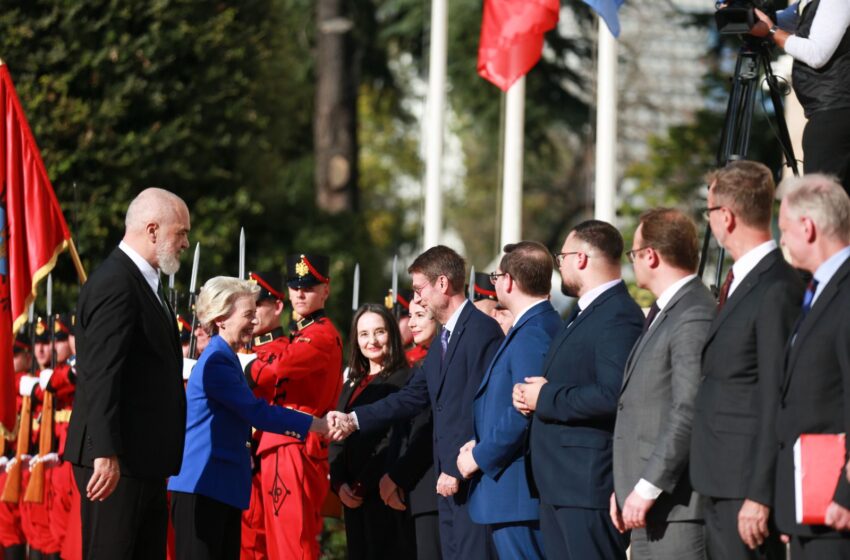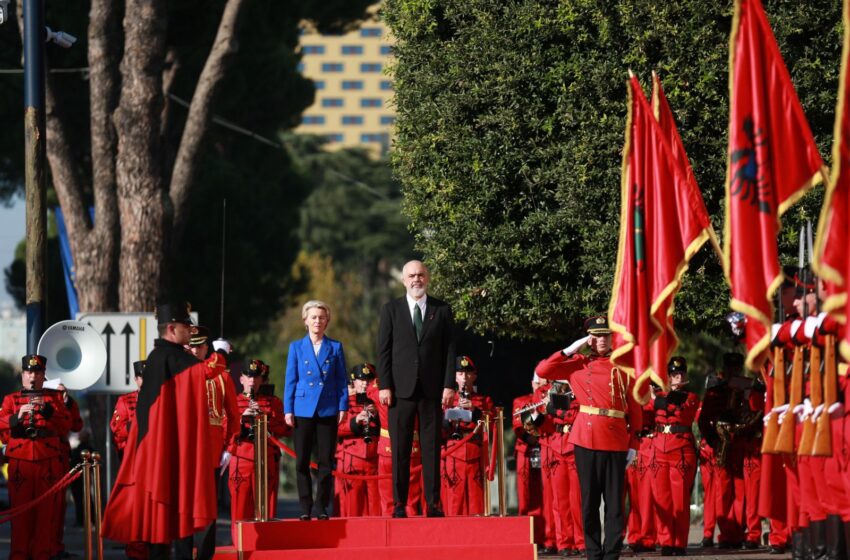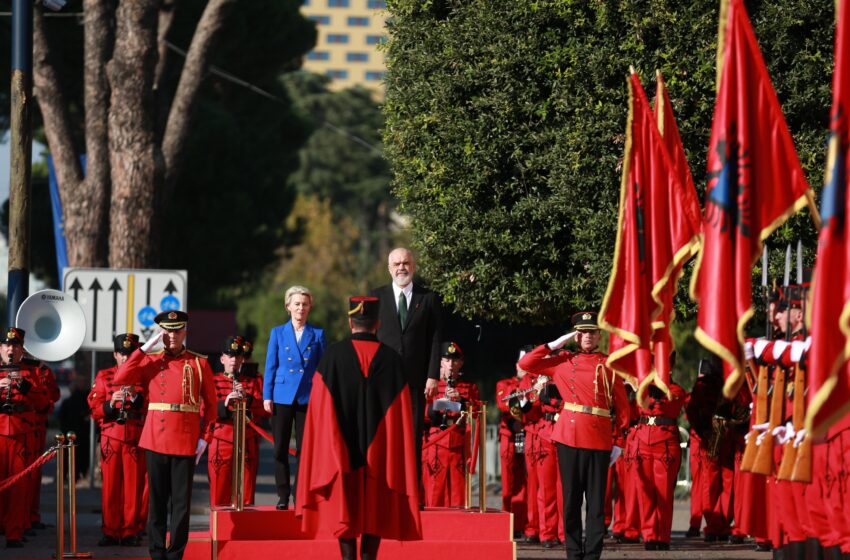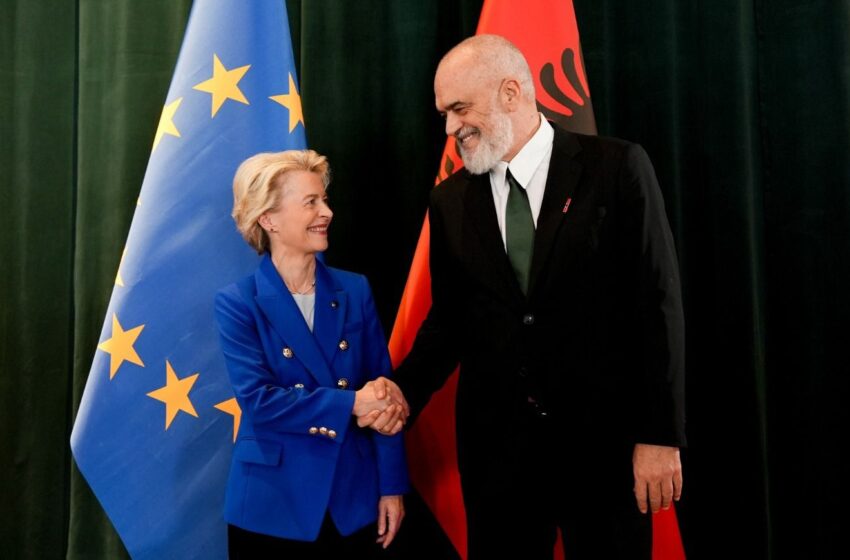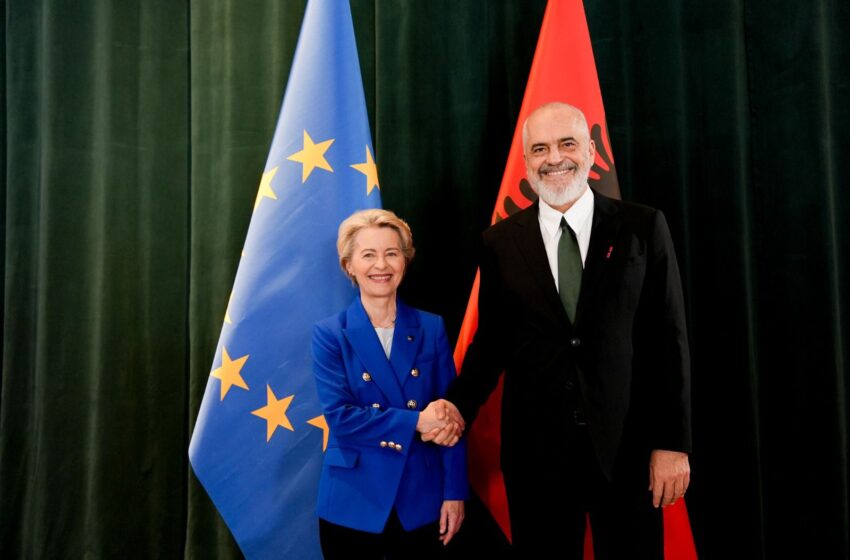EU Commission President kicks off Balkan tour in Tirana
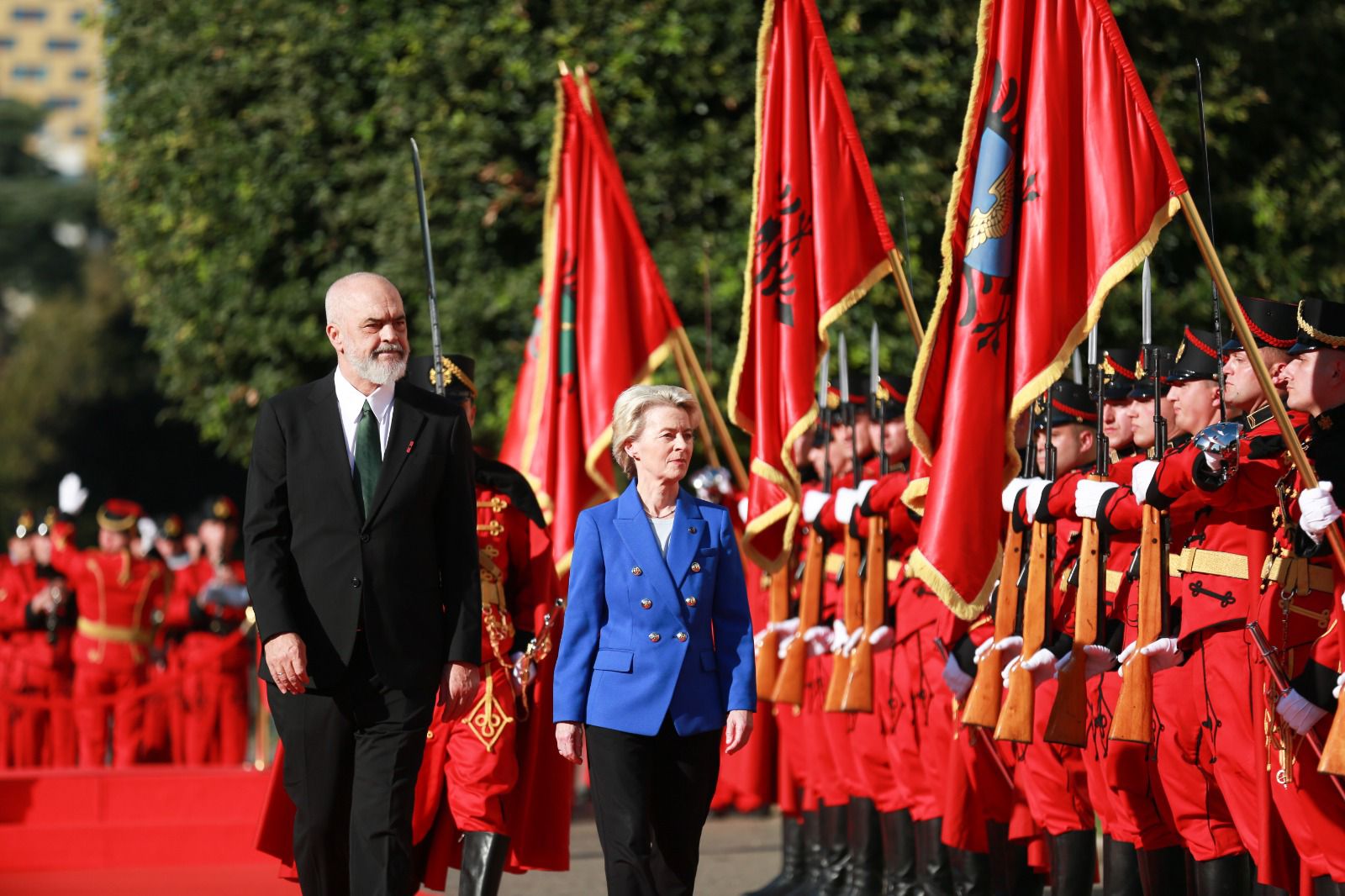
Photo: Edi Rama and Ursula von der Leyen
European Commission President Ursula von der Leyen began her Balkan tour in Tirana. The decision to start in Albania reflects the country’s positive developments in its EU membership process. Last week, Albania opened negotiations for the first key chapters, a move von der Leyen described as well-deserved.
Why is this important: The visit highlights the European Union’s strategic commitment to Albania and the Western Balkans, reinforcing the importance of regional stability and integration. Albania’s recent progress in EU accession is a milestone in aligning with European standards, crucial for economic growth, political stability, and stronger regional cooperation. Von der Leyen’s visit underscores that, despite challenges, the EU remains focused on supporting Albania’s path toward membership.
Von der Leyen’s message: Von der Leyen highlighted that the success of Albania reflects years of hard work and commitment to a shared objective. “This success comes as a result of many years of hard work and dedication toward this common goal. You have shown vision and patience, and the results are becoming clear,” she said. “I want to thank all the teams that worked day and night to achieve this and that will continue working on negotiations for the next chapters. Be assured that EU enlargement will remain a top priority during my next term. We now have all the instruments and mechanisms in place, so good work must continue.”
Rama eyes 2030 membership: Prime Minister Edi Rama expressed confidence that Albania will become a member of the EU by 2030. He reaffirmed Albania’s commitment to fulfilling all recommendations and criteria necessary for membership. “We are fully committed to this goal, and our negotiation team has already proven itself in Brussels. This is a challenging process that only gets harder as it moves forward, with thousands of tasks to be translated into laws, bylaws, and practical implementation,” Rama stated.
Political tensions loom: Rama acknowledged the challenges posed by Albania’s political situation. The opposition, embroiled in internal conflicts, is focused on legal battles involving its leaders. Former Prime Minister Sali Berisha is under house arrest on corruption charges, while Ilir Meta, leader of another opposition party, is under arrest for corruption and undeclared wealth. Despite these difficulties, Rama remained optimistic. “Although the political situation is not ideal, we cannot dwell on it. We must move forward and complete our tasks, just as we managed to bring Albania to the negotiation table. I am confident that, sooner rather than later, we will secure Albania’s seat at the European Council table as a full member,” Rama added.
EU boosts Albania’s path to membership: The Prime Minister emphasized that Albania remains among the most pro-European countries, with 95% of Albanians supporting EU membership, according to the European Barometer.
Von der Leyen also announced significant financial support to help Albania prepare for EU accession.
“We must begin pre-financing €64 million by the end of the year. Overall, Albania will receive more than €920 million through the Growth Plan,” she said. “The Growth Plan will deliver tangible results. For instance, Albania is on track to join the Single Euro Payments Area next year, making money transfers between Albania and the EU faster, safer, and free.”
The EU is also supporting Albania’s clean energy transition. Von der Leyen mentioned investments of €1.4 billion focused on renewable energy projects, such as the Vau i Dejës solar-powered hydropower plant. She also highlighted a €50 million energy efficiency program aimed at installing electric vehicle charging stations and promoting sustainable transportation, including plans for Albania’s first electric bus system in Tirana.
A tour with regional impact: After Tirana, von der Leyen will continue her tour through Skopje, Sarajevo, Belgrade, Pristina, and Podgorica. The tour demonstrates the European Commission’s serious commitment to the region, which has not seen such peaceful conditions since the wars of the 20th century.
